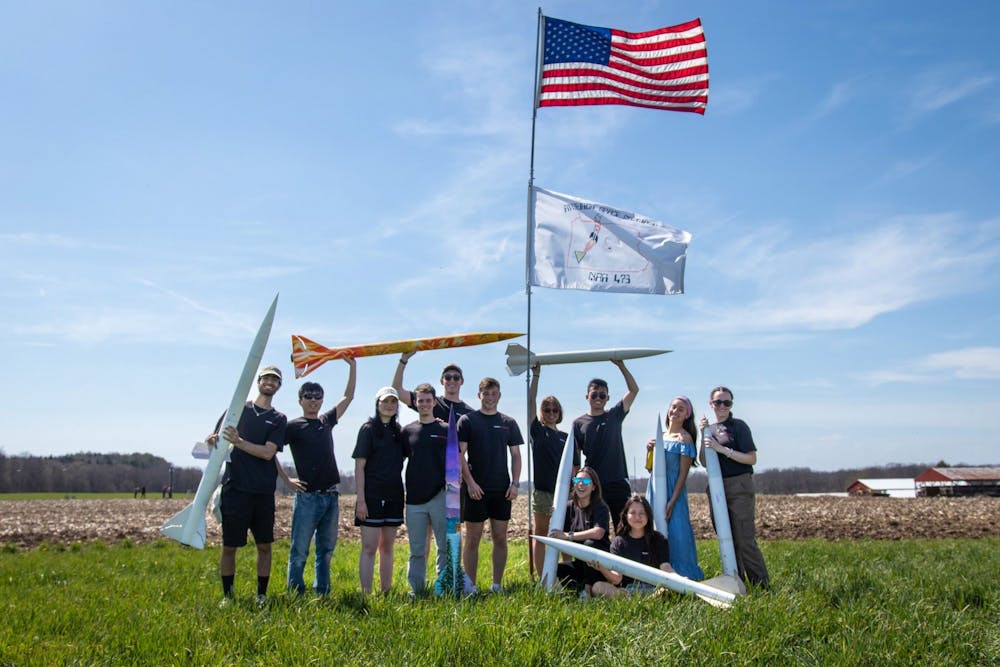Penn Rocketry traveled to Pittsburgh to launch several student-assembled rockets on April 24.
Penn Rocketry — a student group founded by College and Wharton sophomore Scott Shrager in November 2021 — traveled to Pittsburgh on Sunday to launch eight high-powered model rockets. The group's 18 members assembled the rockets, which feature visual art by College sophomore Zuha Nasim.
The rockets were launched over 3,000 feet feet in the air — armed with newly earned Level 1 High Powered Rocketry Certifications.
"It’s very exciting to work in a club that is contributing to high technology," College first year Dina Zhanybekova said.
The group was drawn to Pittsburgh by the opportunity of launching with the Pittsburgh Space Command, one of the chapters of the National Association of Rocketry.
"This has been a fun morale-boosting thing to do, which also got us some hands-on experience with rockets," Shrager said of the project.
Aside from the Pittsburgh launch, Penn Rocketry is also setting its focus on the International Spaceport America competition in New Mexico, where they plan to enter into the 10,000-foot category next summer.
Preparing for the rocket they plan to use — which will be 11 feet tall, and 55 pounds — "consumes 90% to 95% of our time and focus," Shrager said.
RELATED:
New student group aims to prepare members for a career in aerospace business
United Nations and NASA officials discuss the space age at Perry World House event
College first year Ali Al Ayssami and Engineering junior Jake Reisner — who work on the mechanical side of this rocket — work to optimize its weight, size, and efficiency. Their main focus is on designing the air brake system, Reiner said.
Zhanybekova runs the marketing and media side of the club, with a focus on building the website and social media accounts.
"Everyone takes ownership of their projects, so it's entrepreneurial in that sense … we run the club kind of like a company," Zhanybekova said.
In the future, Penn Rocketry has goals to work on liquid engines — a type of engine used by NASA and SpaceX, Shrager said.
"We also have this larger vision of eventually working on liquid engines, which are the types of engine used by NASA and SpaceX,'' Shrager said.
"We really struck gold with this team, and that’s why we have been able to move so fast and hit a lot of our milestones in just six months," Shrager said.









